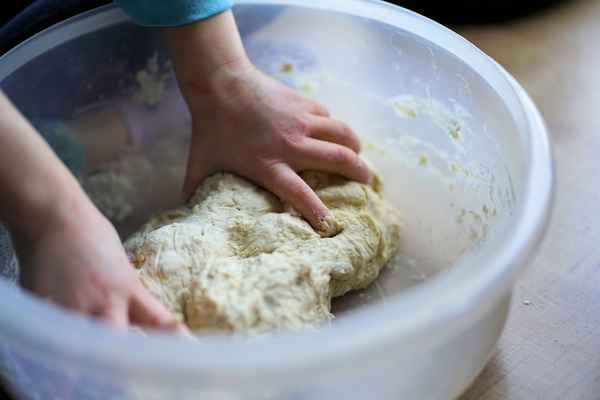Homeschool 101

"I'm not telling you it's going to be easy - I'm telling you it's going to be worth it."
- Art Williams
Maybe you're just starting to homeschool...Or perhaps you've been a home educator for years. Either way, the road can be bumpy and the journey can be daunting. I hope these suggestions empower, reassure, and inspire you to keep going. Use them as a jumping-off point or as a way to re-calibrate your compass. And remember that in homeschooling, change is the only constant, because we're working with young humans who grow and evolve daily.
Take Time to Deschool
"Deschooling is walking away from what you think you know about education and being open to what is...and what could be." - Ashley Logsiden
The term "deschooling" refers to a period of time in which new homeschoolers refrain from structured academic learning and focus instead on following the child's interests. The goal of deschooling is to break free from the mindset that tells us there's a specific time, place, and method for learning.
The deschooling period can be anywhere from a few weeks to a couple of years, or can continue indefinitely (as in the case of unschooling). During the deschooling process, families talk about what they want their homeschool experience to look and feel like, and they spend their days exploring their interests and strengthening the parent-child bond. And remember, you can deschool whenever you feel the need to break free of unhelpful beliefs - even if you've been homeschooling for a decade!
Rhythm/Routine/Schedule
"We are the architects of our family's daily lives." - Kim John Payne
Some homeschoolers follow a weekly rhythm (Monday - baking day, Tuesday - handwork day). Others have a sequential routine (morning work period, lunch, silent reading), and still others stick to a precise schedule (9am - reading, 10am - math).

The best system is the one that works for your family. Different members of the same household might even use different systems depending on their personality or learning style. In my family, we swing from a rhythm to a schedule throughout the year, based on the children's enrichment activities or my work demands. Watch your children to see which approach works best for them, and remember to honor your own needs too!
Prepare the Environment
"The first aim of the prepared environment is, as far as it is possible, to render the growing child independent of the adult." - Maria Montessori
The Montessori term "prepared environment" refers to the physical space that's set up to meet the developmental needs of a child or children. Your home is now your child's learning environment, and a few changes can go a long way towards supporting their independence and fostering their creativity. We'll discuss the home environment in the Montessori Homeschool Hub membership community. But for now, consider stocking your home with art and writing supplies, and think about how you can minimize clutter and maximize inspiration.
Confidence Boosters
"You must do the thing which you think you cannot do." - Eleanor Roosevelt
For many parents, the most daunting aspect of homeschooling is the responsibility of giving their child a quality education. The good news is that you are the expert on your child, and you have a connection with them that no other adult can match (even if you do get on each other's nerves sometimes).

What you need now are some confidence boosters to help you overcome your hesitation. Here are five of my favorites:
1. Jot it down: The gift of homeschooling is that you're there to witness your child's discoveries, connections, and new abilities. Write down these moments, because they're a great reminder that children are always learning and growing. Also write down anything your children do that's even remotely related to what you would consider learning. The more you observe, the more you'll realize the enormous amount of intellectual growth that takes place during play, art, and outdoor explorations.
2. Make practice practical: Instead of printing out another worksheet, involve your child in managing your shopping budget, fixing the broken vacuum cleaner, or baking bread! They'll be practicing lots of academic skills (reading, writing, math) in real-world scenarios.
3. Pop-up learning: Find unexpected moments for learning and skills practice. For example: write a joke on the whiteboard and invite your child to write their answer; put a giant map on the wall and play "Where in the world"; learn one new word a day together and use it in your conversations.
4. Wonder wall: Designate a two-foot by two-foot space on the wall near the place where you eat dinner together. Keep sticky notes and pens handy, and any time anyone in the family has a question about anything, write it down and stick it on the wall. Don't google it, just stick it up. Then, at dinner, pick a couple of questions and discuss them as a family, offering both rational hypotheses and crazy answers. Find out why your child asked this question and how much they already know about the topic, and help them find resources so they can learn more. Voila, instant research project!
5. Get some co-teachers: You don't have to know or teach everything; you just have to connect your child to the right resources. Consider subscription kits, classes, tutors, workshops, online tutorials, and co-ops to support your child's education.
************
Homeschooling is not easy - just like raising a child isn't easy. But like it is with parenting, the most challenging homeschool days pale in comparison to the breathtaking moments of joy and discovery you get to experience alongside your child.
Join the Montessori Homeschool Hub - the only membership and group coaching program designed to help homeschooling parents motivate and empower their children to become lifelong learners without nagging, punishments, or bribes! Click here to transform your homeschool experience today!
Categories
- 3-6 (8)
- 6-9 (26)
- 9-12 (8)
- Positive Discipline (2)
- Conscious Parenting (12)
- Montessori Curriculum (9)
- Preparation of the Adult (14)
- Preparation of the Environment (11)
- Montessori Principles (11)
- Montessori Homeschooling (20)
- Language Arts (3)
- Math (3)
- Geography (2)
- Biology (1)
- History (2)
- Practical Life (1)
- Montessori Stories (4)

0 comments
Leave a comment